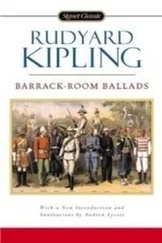Джозеф Киплинг - From Sea to Sea
Здесь есть возможность читать онлайн «Джозеф Киплинг - From Sea to Sea» весь текст электронной книги совершенно бесплатно (целиком полную версию без сокращений). В некоторых случаях можно слушать аудио, скачать через торрент в формате fb2 и присутствует краткое содержание. Год выпуска: 2014, Издательство: epubBooks Classics, Жанр: Биографии и Мемуары, Публицистика, на английском языке. Описание произведения, (предисловие) а так же отзывы посетителей доступны на портале библиотеки ЛибКат.
- Название:From Sea to Sea
- Автор:
- Издательство:epubBooks Classics
- Жанр:
- Год:2014
- ISBN:нет данных
- Рейтинг книги:3 / 5. Голосов: 1
-
Избранное:Добавить в избранное
- Отзывы:
-
Ваша оценка:
- 60
- 1
- 2
- 3
- 4
- 5
From Sea to Sea: краткое содержание, описание и аннотация
Предлагаем к чтению аннотацию, описание, краткое содержание или предисловие (зависит от того, что написал сам автор книги «From Sea to Sea»). Если вы не нашли необходимую информацию о книге — напишите в комментариях, мы постараемся отыскать её.
From Sea to Sea — читать онлайн бесплатно полную книгу (весь текст) целиком
Ниже представлен текст книги, разбитый по страницам. Система сохранения места последней прочитанной страницы, позволяет с удобством читать онлайн бесплатно книгу «From Sea to Sea», без необходимости каждый раз заново искать на чём Вы остановились. Поставьте закладку, и сможете в любой момент перейти на страницу, на которой закончили чтение.
Интервал:
Закладка:
But one flying sentence goes straight to the heart. It is the cry of Humanity over the task of Life, done into unrefined English. An apprentice, grimed to his eyebrows, his cloth cap well on the back of his curly head and his hands deep in his pockets, is sitting on the edge of a tool–box ruefully regarding the very much disorganised engine whose slave is he. A handsome boy, this apprentice, and well made. He whistles softly between his teeth, and his brow puckers. Then he addresses the engine, half in expostulation and half in despair, "Oh, you condemned old female dog!" He puts the sentence more crisply—much more crisply—and Ignorance chuckles sympathetically.
Ignorance also is puzzled over these engines.
Chapter III
Vulcan's Forge
In the wilderness of the railway shops—and machinery that planes and shaves, and bevels and stamps, and punches and hoists and nips—the first idea that occurs to an outsider, when he has seen the men who people the place, is that it must be the birthplace of inventions—a pasture–ground of fat patents. If a writing–man, who plays with shadows and dresses dolls that others may laugh at their antics, draws help and comfort and new methods of working old ideas from the stored shelves of a library, how, in the name of Commonsense, his god, can a doing–man, whose mind is set upon things that snatch a few moments from flying Time or put power into weak hands, refrain from going forward and adding new inventions to the hundreds among which he daily moves?
Appealed to on this subject, Experience, who had served the E. I. R. loyally for many years, held his peace. "We don't go in much for patents; but," he added, with a praiseworthy attempt to turn the conversation, "we can build you any mortal thing you like. We've got the Bradford Leslie steamer for the Sahibgunge ferry. Come and see the brass–work for her bows. It's in the casting–shed."
It would have been cruel to have pressed Experience further, and Ignorance, to foredate matters a little, went about to discover why Experience shied off this question, and why the men of Jamalpur had not each and all invented and patented something. He won his information in the end, but did not come from Jamalpur. That must be clearly understood. It was found anywhere you please between Howrah and Hoti Mardan; and here it is that all the world may admire a prudent and far–sighted Board of Directors. Once upon a time, as every one in the profession knows, two men invented the D. and O. sleeper—cast iron, of five pieces, very serviceable. The men were in the Company's employ, and their masters said: "Your brains are ours. Hand us over those sleepers." Being of pay and position, D. and O. made some sort of resistance and got a royalty or a bonus. At any rate, the Company had to pay for its sleepers. But thereafter, and the condition exists to this day, they caused it to be written in each servant's covenant, that if by chance he invented aught, his invention was to belong to the Company. Providence has mercifully arranged that no man or syndicate of men can buy the "holy spirit of man" outright without suffering in some way or another just as much as the purchase. America fully, and Germany in part, recognises this law. The E. I. Railway's breach of it is thoroughly English. They say, or it is said of them that they say, "We are afraid of our men, who belong to us, wasting their time on trying to invent."
Is it wholly impossible, then, for men of mechanical experience and large sympathies to check the mere patent–hunter and bring forward the man with an idea? Is there no supervision in the "shops," or have the men who play tennis and billiards at the institute not a minute which they can rightly call their very own? Would it ruin the richest Company in India to lend their model–shop and their lathes to half a dozen, or, for the matter of that, half a hundred, abortive experiments? A Massachusetts organ factory, a Racine buggy shop, an Oregon lumber–yard, would laugh at the notion. An American toy–maker might swindle an employé after the invention, but he would in his own interests help the man to "see what comes of the thing." Surely a wealthy, a powerful and, as all Jamalpur bears witness, a considerate Company might cut that clause out of the covenant and await the issue. There would be quite enough jealousy between man and man, grade and grade, to keep down all but the keenest souls; and, with due respect to the steam–hammer and the rolling–mill, we have not yet made machinery perfect. The "shops" are not likely to spawn unmanageable Stephensons or grasping Brunels; but in the minor turns of mechanical thought that find concrete expressions in links, axle–boxes, joint packings, valves, and spring–stirrups something might—something would—be done were the practical prohibition removed. Will a North countryman give you anything but warm hospitality for nothing? Or if you claim from him overtime service as a right, will he work zealously? "Onything but t' brass," is his motto, and his ideas are his "brass."
Gentlemen in authority, if this should meet your august eyes, spare it a minute's thought, and, clearing away the floridity, get to the heart of the mistake and see if it cannot be rationally put right. Above all, remember that Jamalpur supplied no information. It was as mute as an oyster. There is no one within your jurisdiction to—ahem—"drop upon."
Let us, after this excursion into the offices, return to the shops and only ask Experience such questions as he can without disloyalty answer.
"We used once," says he, leading to the foundry, "to sell our old rails and import new ones. Even when we used 'em for roof beams and so on, we had more than we knew what to do with. Now we have got rolling–mills, and we use the rails to make tie–bars for the D. and O. sleepers and all sorts of things. We turn out five hundred D. and O. sleepers a day. Altogether, we use about seventy–five tons of our own iron a month here. Iron in Calcutta costs about five–eight a hundredweight; ours costs between three–four and three–eight, and on that item alone we save three thousand a month. Don't ask me how many miles of rails we own. There are fifteen hundred miles of line, and you can make your own calculation. All those things like babies' graves, down in that shed, are the moulds for the D. and O. sleepers. We test them by dropping three hundredweight and three hundred quarters of iron on top of them from a height of seven feet, or eleven sometimes. They don't often smash. We have a notion here that our iron is as good as the Home stuff."
A sleek, white, and brindled pariah thrusts himself into the conversation. His house appears to be on the warm ashes of the bolt–maker. This is a horrible machine, which chews red–hot iron bars and spits them out perfect bolts. Its manners are disgusting, and it gobbles over its food.
"Hi, Jack!" says Experience, stroking the interloper, "you've been trying to break your leg again. That's the dog of the works. At least he makes believe that the works belong to him. He'll follow any one of us about the shops as far as the gate, but never a step further. You can see he's in first–class condition. The boys give him his ticket, and, one of these days, he'll try to get on to the Company's books as a regular worker. He's too clever to live." Jack heads the procession as far as the walls of the rolling–shed and then returns to his machinery room. He waddles with fatness and despises strangers.
"How would you like to be hot–potted there?" says Experience, who has read and who is enthusiastic over She , as he points to the great furnaces whence the slag is being dragged out by hooks. "Here is the old material going into the furnace in that big iron bucket. Look at the scraps of iron. There's an old D. and O. sleeper, there's a lot of clips from a cylinder, there's a lot of snipped–up rails, there's a driving–wheel block, there's an old hook, and a sprinkling of boiler–plates and rivets."
Читать дальшеИнтервал:
Закладка:
Похожие книги на «From Sea to Sea»
Представляем Вашему вниманию похожие книги на «From Sea to Sea» списком для выбора. Мы отобрали схожую по названию и смыслу литературу в надежде предоставить читателям больше вариантов отыскать новые, интересные, ещё непрочитанные произведения.
Обсуждение, отзывы о книге «From Sea to Sea» и просто собственные мнения читателей. Оставьте ваши комментарии, напишите, что Вы думаете о произведении, его смысле или главных героях. Укажите что конкретно понравилось, а что нет, и почему Вы так считаете.












